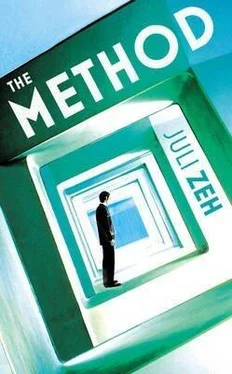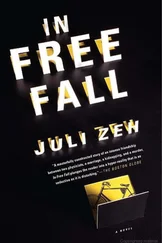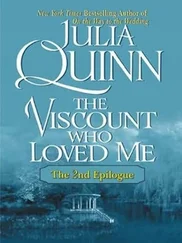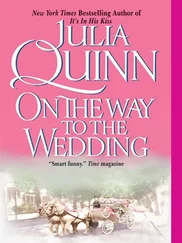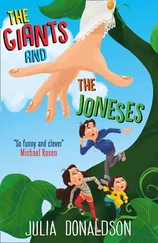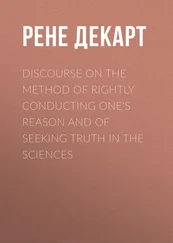The light stops her sleeping. It interrupts her thoughts. Each new flash of light cuts into her brain like a knife. There is no rest. No loss of consciousness. No sinking into merciful oblivion. They have condemned Mia, or what is left of Mia, to being wide awake.
‘The good thing about a sister, you once said to me, is not having to believe in her. According to you, that’s what distinguished me, your sister, from God, from you, and from everything you said and did. I said no one except God was stupid enough to need constant proof of his own existence. You looked at me seriously and said God’s existence was long proven. You gave me three proofs of his existence: there is no God, God is a figment of your imagination, and God is dead. I made you explain. No one, you said, comments on a thing that doesn’t exist; no one points out its non-existence or claims that it’s dead. Otherwise, you said, the world would be full of statements like “Casmanets are a figment of your imagination!” or “Teezle is dead”. What, I asked, are casmanets? And who is Teezle? You laughed and laughed. See, you said, they don’t exist! It’s a good thing we’re not obliged to point out the non-existence of the non-existent in order to stop it from existing; it would take all day, you said. I think you were twelve at the time.’
When the next spasm comes she manages to hold both hands beneath her head and roll a little to the side. She is almost on her back.
‘Of course, I laughed too. Laughing was wonderful; laughing together was fun, especially when we were kids and you were discovering philosophy. Philosophy was laughter that never seemed to stop. You said that nothing was a given, especially the world. Who gave it? The same impersonal it that rains? The same it that is high time? The same it that is possible, impossible, obvious and clear? If so, God and I have a lot in common. They’re nothing but pronouns. A grammatical bind.’
A noise escapes from Mia: with a bit of imagination, we could construe it as a laugh or a cough.
‘You were so smart. After that I couldn’t say “it’s raining” without smiling to myself. Maybe it’s raining now … What season is it? We should all have a tree outside our window or a steep slate roof on the other side of the street, something to tell us if it’s raining. Darkness should be a human right. Maybe I’ll start a campaign. The point of night is to adjust ourselves gradually to darkness. The point of sleep is to adjust ourselves to death, night after night. Turn off the light. Sometimes a long train of thought leads nowhere but autumn.’
For a while Mia lies in silence, tapping her foot limply in time with the rhythm of the light until her head is full again, her mind overrun by the ceaseless, intrusive and unnecessary production of thoughts. An impenetrable jungle of musings. Speech is a scythe.
‘Your knees are my only chair. Your back is my table. Your eyes are my windows. May your mouth be the glass from which I drink, your heart my sustenance, your pulse my watch, your life my time. May your breath be my air. May your face be my moon when you bend over me at night, and my sun when you laugh for me in the light. May your voice be my only sound, your pulse be my watch, your life be my time. May your death be mine.’
The spasms return with a vengeance, causing Mia to throw her head from side to side as if her thoughts were pestering her like flies. When her temple hits the floor again, pain oozes into her, seeping through her right ear, spreading like acid through her lower jaw, numbing her lips, closing her right eye. Mia sees her head as an ants’ nest made entirely of delicate walkways filled with poison. Then darkness comes at last.
SHE HEARS THE sound of falling water, an irregular bright patter, too loud for rain. It smells of vinegar. When Mia opens her eyes, she is looking straight into Kramer’s face. It doesn’t strike her as unusual: she has long felt that his image is inscribed on the inside of her eyelids.
‘What are you doing?’ she asks.
‘Working on your resurrection.’ He dips a sponge into a bowl and draws it across her brow. ‘How are you feeling?’
‘Terrific. I’ll soon be well enough to dash your brains out.’
‘That’s wonderful news,’ says Kramer.
Without warning Mia’s head moves in a spasm, jerking to the side and knocking the bowl from Kramer’s hand.
‘Sorry,’ she says. ‘Collateral damage — although I don’t suppose anyone is counting any more.’
‘That’s what I’m here to discuss.’
Kramer has brought two chairs. During his last visit, he and Mia sat on these chairs and chatted. She hasn’t seen them since.
This time, Kramer has to scoop Mia into his arms and place her on the chair. Her body must be rearranged carefully to ensure she is balanced.
‘During the witch hunts,’ says Mia, ‘if a person survived being tortured, they let her go.’
‘I’m afraid the excursion to the Middle Ages is over.’
Mia looks at Kramer and jerks her chin towards a corner of the cell. ‘Over there.’
Kramer hovers, uncertain as to whether to sit down. ‘I’m sorry?’
‘Just do it, won’t you?’
He turns and follows her directions. ‘Do you know the craziest thing about all this?’ he says.
‘Kneel.’
Kramer looks at Mia, who is balanced helplessly on the chair; then he drops to his knees and continues to talk. He looks old-fashioned, like a Christian at prayer.
‘It didn’t occur to me until yesterday,’ he says, ‘and I haven’t stopped thinking about it since. It seemed to me that I’d dealt with life’s key questions in my youth. I’d always assumed that a well-regulated human life consisted of four main stages. The first twenty years are spent thinking. In the next twenty, you speak; in the third stage, you act; and in the final stage, you return to thinking. I recently made the transition from speaking to acting.’
‘Put your hand on the tiles and run your finger along the gap,’ says Mia.
Kramer does as he is bidden and slots a finger between the tiles. ‘Then you came along. Suddenly I’m back in a thinking phase again.’
He sounds in a good mood. Still on his knees, he raises his head to look at Mia as if expecting her to rejoice in his intellectual rejuvenation. But Mia’s attention is focused on something closer to hand. Summoning all her remaining strength, she sits straight in her chair and screws up her eyes, straining to see.
‘Have you found it?’
Kramer gets up, holding a long needle between his thumb and index finger. ‘Do you mean this?’
‘Well done,’ says Mia. ‘Now come over here.’
Kramer stands in front of her obediently. ‘Don’t you want to know what I’m thinking about?’
Mia takes the needle from him and shakes her head — this time, intentionally.
‘You accused me of fanaticism,’ says Kramer. ‘But you’re the one who wants to die for your freshly minted beliefs. Doesn’t that strike you as odd?’
‘Bend down.’
Kramer bends at the hips and places his hands on his knees like a goalkeeper. His face is level with hers. As they look at each other in close-up, Mia raises the needle and points it at his right eye.
‘The question is,’ he says, ‘how can you tell the martyr from the fanatic? I chose my side decades ago and I’ve sacrificed everything. I’ll continue to sacrifice everything, including the most valuable human possession: my time on this Earth. Meanwhile, you chose your side yesterday and you’re intent on sacrificing your life in a struggle you’re going to lose. Surely that makes me the martyr and you the fanatic?’
Mia holds the needle millimetres from his eye. ‘Aren’t you scared?’
Читать дальше
